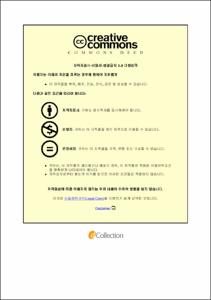문화간 의사소통능력을 고려한 한국문화 교수요목 설계 연구
- Alternative Title
- A Study of the Instructional Design of Korean Culture Considering Intercultural Communicative Competence
- Abstract
- The purpose of this study is to establish a instructional design of Korean Culture considering intercultural communicative competence(ICC, for short) in Korean language education for foreigners.
A definition of ICC in KFL(Korean as a foreigner Language) is that it is the learner’s individual abilities to perform appropriately and effectively when interacting or communicating with Korean in various socio-cultural situations of Korean society from oneself. ICC has four dimensions: knowledge, attitudes, skills and awareness like Fantini’s study(2006). ICC gradually develops through these four dimensions’ interaction and never ends developmental levels.
At present Korean learning for foreigners focuses on language skills, and intercultural ability needed to perform effectively interaction between native Korean and KFL learners is often overlooked. Teaching culture is needed to develop ICC for learners. For the Korean language learners, learning about Korean culture is key to using correctly the Korean language. It is because that the language is a part of the culture and the cultural factors is reflected in the language.
In addition, KFL learner’s ICC influences not only proficiency in his/her Korean but also adjustment to his/her new life in Korea. Therefore, it is needed to pay attention to LC2 learner’s ICC and to design a new syllabus for teaching Korean culture accordingly.
For this, this study looked up various definitions of culture, the relationship between language and culture, and today’s situation of KFL firstly. Secondly, examined the KFL learner’s level of ICC and an index of ICC for KFL learners through delphi technique, which total 11 specialists in Korean education participated in this study. Thirdly, this study surveyed KFL learners about what is Korean culture they want to learn in Korean class. Lastly, Korean cultural factors which the KFL learners preferred to learn and ICC index selected using delphi test were integrated. And based on the two results, this study suggested a new instructional design for development ICC for KFL learners.
The results of this study is as follows.
First, 11 specialists who participated delphi test agreed that Attitude is the most important thing of four dimension. Next, KFL learners would like to prefer Korean traditional culture to modern culture and have interested in Korea society and Korean arts and literatures as well. In particularly, when integrating preferred Korean cultural factors into ICC index, it was demonstrated that both the specialists in KFL education and KFL learners preferred to learn modern Koreans’ life, Korean Society commonly. And Korean art and literature was for the learners, Korean characteristics was for the specialists.
Thus, an instructional design for beginning, intermediate and advance level in Korean education based on four Korean cultural factors: Koreans’ life, Korean Society Korean art and literature Korean characteristics was established. Korean cultural factors of each levels help to develop KFL learners’ ICC.
Now the KFL learners are increasing consistently, ICC is essential for the learners’ Korean proficiency and their successful Korean life. Therefore, various study on ICC will be attempted in KFL education.
- Issued Date
- 2017
- Awarded Date
- 2017. 8
- Type
- Dissertation
- Keyword
- 문화간 의사소통능력 문화간 의사소통능력 지표 한국문화항목 한국문화 교수요목
- Publisher
- 부경대학교
- Affiliation
- 부경대학교 대학원
- Department
- 대학원 국어국문학과
- Advisor
- 채영희
- Table Of Contents
- Ⅰ. 서론 1
1.1. 연구의 필요성과 목적 1
1.2. 연구 내용과 방법 3
1.3. 선행 연구 6
Ⅱ. 이론적 논의 16
2.1. 언어와 문화 16
2.1.1. 문화의 정의 16
2.1.2. 언어와 문화 18
2.2. 문화교육과 문화간 의사소통능력 20
2.2.1. 언어교육과 문화간 의사소통능력 20
2.2.2. Fantini의 문화간 의사소통능력 26
2.3. 한국어 교육에서의 문화교육 33
Ⅲ. 한국어 교육에서의 문화간 의사소통능력 지표의 선정 44
3.1. 한국어 학습자의 문화간 의사소통능력 수준 조사 44
3.1.1. 조사 대상 44
3.1.2. 조사 도구 및 절차 46
3.1.3. 조사 결과 48
3.2. 문화간 의사소통능력 지표 선정을 위한 델파이 조사 50
3.2.1. 조사 대상 50
3.2.2. 조사 도구 및 절차 51
3.2.3. 조사 결과 57
Ⅳ. 한국문화항목 선정을 위한 학습자 요구 조사 73
4.1. 한국어교육에서 문화항목 선정을 위한 기초 작업 73
4.1.1. 문화의 유형 및 범주 73
4.1.2. 학습자 요구 조사를 위한 문화항목 선정 75
4.2. 한국문화항목 선정을 위한 학습자 요구 조사 83
4.2.1. 조사 대상 83
4.2.2. 조사 도구 및 절차 84
4.2.3. 조사 결과 86
4.3. 결과분석 127
Ⅴ. 문화간 의사소통능력을 고려한 한국문화 교수요목 설계 133
5.1. 문화간 의사소통능력을 위한 교수요목 설계 133
5.2. 한국문화 교수요목 설계를 위한 교육목표 설정 136
5.3. 문화간 의사소통능력을 고려한 한국문화 교수요목 142
5.3.1. 교수요목 선정 기준 142
5.2.3. 문화간 의사소통능력을 고려한 단계별 교수요목 146
Ⅵ. 결론 158
참고 문헌 162
부록 177
- Degree
- Doctor
- Files in This Item:
-
-
Download
 문화간 의사소통능력을 고려한 한국문화 교수요목 설계 연구.pdf
기타 데이터 / 2.44 MB / Adobe PDF
문화간 의사소통능력을 고려한 한국문화 교수요목 설계 연구.pdf
기타 데이터 / 2.44 MB / Adobe PDF
-
Items in Repository are protected by copyright, with all rights reserved, unless otherwise indicated.